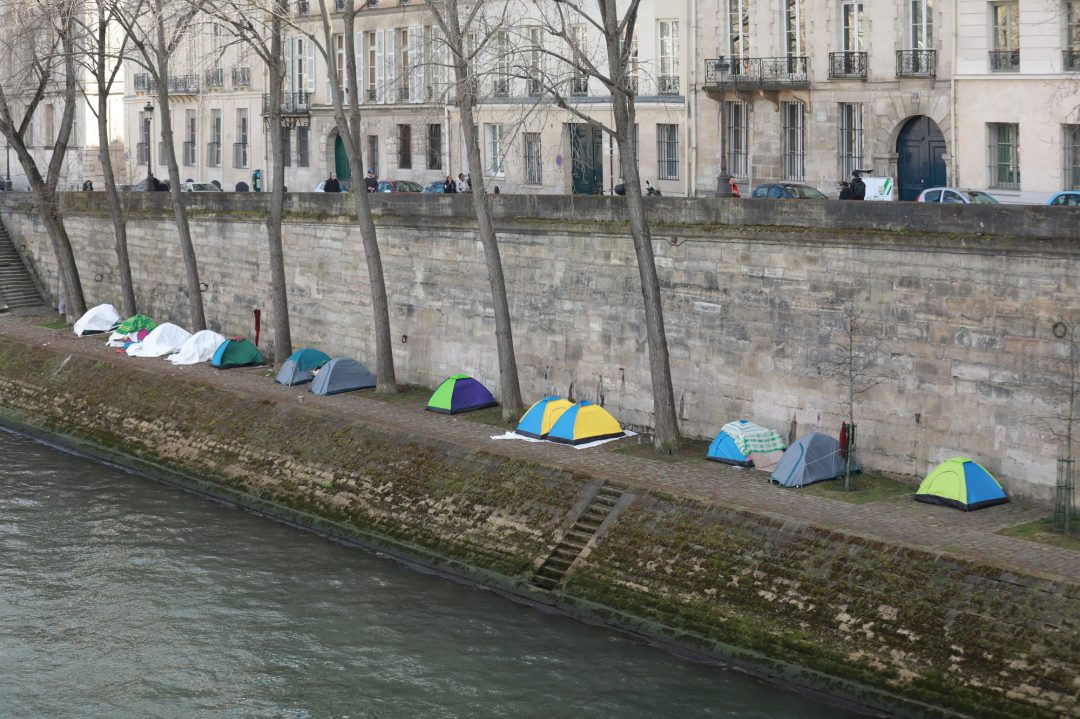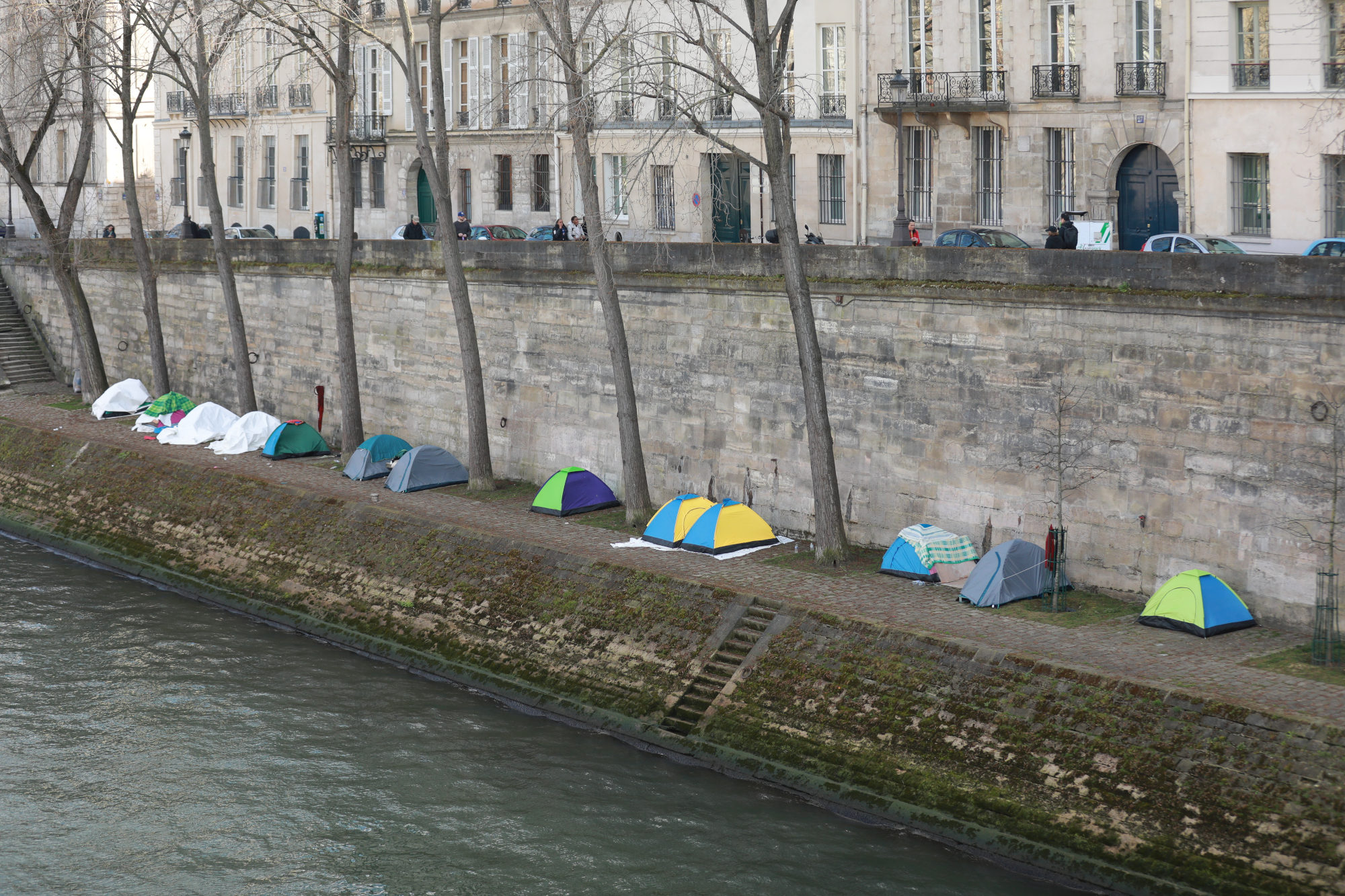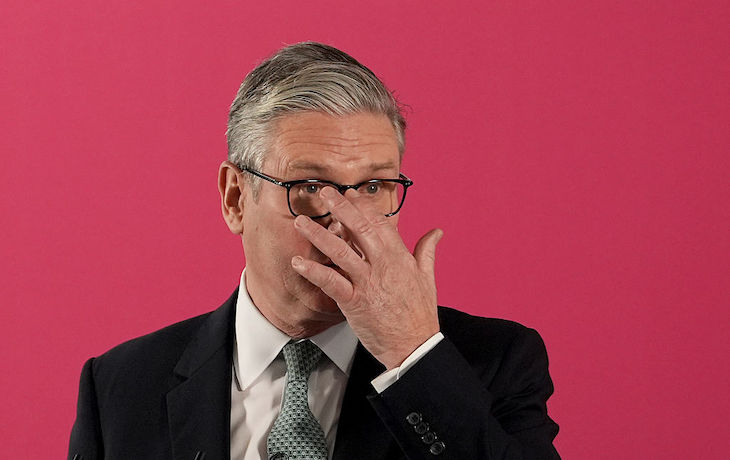The High Court victory of Epping Forest District Council has made news in France. The decision to temporarily block migrants from being housed in The Bell Hotel was covered by newspapers such as Le Monde and Le Figaro.
The latter provided some context to the growing tension in England, noting that the migrants in Epping are just a few of the estimated 32,000 migrants housed in hotels ‘at the expense of the British taxpayer.’
In the years since most journalists have shied away from reporting on the ongoing practice of housing migrants in hotels
Earlier this month the cover story of a weekly current affairs magazine in France, JDD News, was devoted to the growing disquiet of Europe’s silent majority at mass immigration. The article was inspired by the protests in Epping but also namechecked the anti-migrant demonstrations in Ireland, Poland and Spain. ‘Across Europe, citizens are taking matters into their own hands in the face of immigration they consider uncontrolled and insecurity that is no longer a fantasy,’ it explained.
One country is an exception to the rule. There have been no mass protests in France, which one might consider surprising given the country’s reputation for street demonstrations.
Since Emmanuel Macron came to power in 2017 France has undergone record levels of legal and illegal immigration. It’s estimated that there around 900,000 illegal immigrants in France while in 2024 a record 2.8 million visas were issued, a 16.8 per cent hike on the previous year. The vast majority of arrivals come from four countries: Algeria, Morocco, Tunisia and Turkey.
As in Britain, accommodating this vast number of newcomers is a challenge, and one that the mainstream media is reluctant to talk about. It wasn’t always the case. In October 2015 the left-wing Liberation reported that ‘around 35,000 people are accommodated each night in 538 hotels in the capital’. Most were migrants and refugees, some of the one million plus people who had flooded into Europe since Angela Merkel opened the continent’s borders that summer. The head of Paris’s social services told the newspaper that ‘we have reached saturation point in the budget hotel market.’
As a result of this saturation, tented migrant camps began appearing in Paris and these captured the attention of sympathetic journalists. The fallacy took hold that migrants and asylum seekers in France were treated far more inhumanely than those in Great Britain.
In reality, France pioneered the practice of housing migrants in hotels. In 2013 it was reported that 900 migrants were being put up in a Strasbourg hotel; four years later, at the height of Europe’s migrant crisis, the government of France purchased 62 hotels belonging to a budget chain in order to transform them into emergency accommodation.
The news was seized on by Marine Le Pen’s National Rally party, prompting an angry backlash from most of the mainstream media. They pointed out that only 38 of the 62 hotels would house migrants; the rest were for France’s homeless.
In the years since most journalists have shied away from reporting on the ongoing practice of housing migrants in hotels. Better to keep up the pretence of the tented camps than be seen providing ammunition for Le Pen.
Local journalists sometimes break ranks. In 2023 it was reported that a hotel in Châteauneuf-Grasse in the Alpes-Maritimes had been transformed into migrant accommodation – at a cost of €2 million – to the fury of locals. They described a catalogue of daily disturbances. ‘Our lives are miserable, and no one helps us,’ said one woman whose housed backed on to the hotel. ‘People are afraid to speak up, afraid of being labelled “fascists”.’
The situation in Châteauneuf-Grasse has got worse; earlier this year a squad of gendarmes were called to quell a riot in the hotel. The mayor of the town, an independent, was only informed of the decision at the last minute and he warned that it might lead to a surge in support for Le Pen’s party. It did. In the 2024 legislative election the National Rally came second (to the centre-right Republicans) with 43 per cent of the vote; in the 2022 election it had polled just 17 per cent. The big loser was Macron’s Renaissance party, whose share of the vote fell from 49 per cent in 2022 to 21 per cent two years later.
On the eve of the 2024 legislative election, Eric Ciotti, then the president of the Republicans, claimed that in the greater Paris region alone, ‘every night, 52,000 hotel beds are rented for immigration’. This, he said, cost the taxpayer around €1.2 billion.
A decade earlier, in 2014, Ciotti had published a report in which he drew attention to the growing number of migrants arriving in France, stating that ‘emergency accommodation expenses, particularly in the form of hotel stays, have consequently increased in a largely uncontrolled manner.’
In contrast Britain’s illegal immigration crisis in 2014 was largely controlled. Back then there were no small boats and the few migrants that did cross the Channel did so in the back of lorries. On one occasion in September 2014, a mob of about 150 migrants stormed a ferry terminal in Calais in an attempt to board a ship. They were repelled.
It took the criminal gangs until 2018 to work out that the best way to enter Britain wasn’t on a big boat but on a small one. Consequently, Britain’s migrant crisis is now as uncontrolled as France’s. The solution of Tory and Labour governments has been to copy Paris and house the migrants in hotels.
But the British media is less subservient than the French press. Even the BBC. It has been asking uncomfortable questions about the cost of housing migrants in hotels since early 2023. France’s state broadcaster doesn’t touch the subject.
As opinion polls regularly show, France’s silent majority are as troubled as the British by mass uncontrolled immigration. The difference is that in Britain the people are no longer afraid to air their disquiet. In France they have been cowed into submission by their mainstream media. To paraphrase the frightened woman in Châteauneuf-Grasse, better to keepschtum than be called a fascist.









Comments